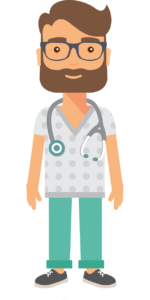Convince and Convert have released a report on what healthcare marketers need to know about what’s trending in social media. The report outlines the healthcare social media trends over the past year to predict what this could look like in the health industry in 2020.
An increasing number of users are preferring to interact with smaller, niche communities. This kind of intimacy gives empowerment to the individual instead of viewing them as a number. This then enables them to share their personal stories, opinions, and recommendations. Therefore, professionals need to think beyond posting the same content across multiple platforms and need to start implementing a one on one approach as part of their social media strategy.
To date, Facebook and Twitter are still the most preferred and most used platforms, whilst Instagram and YouTube have the most engaging posts. Facebook, however, has the tools that can strategically meet the more intimate needs of users.
If healthcare professionals can maximise the following additional features within Facebook, they will be able to engage with their communities differently and deeply.
Facebook Messenger
Hospitals that are incorporating private interaction through a ‘message us’ social approach are engaging different user groups. 81% of users share health information through Facebook Messenger which is almost as much as those who share it via posts. This describes the notion of “Dark Social”, the invisible shares and interactions on social media that can’t be seen or tracked.
Messenger Tips
Professionals, therefore, need to incorporate a personalised messaging approach and can achieve this by:
- Setting a personalised message on the homepage of the messaging screen
- Allowing for instant replies, and making them interesting and helpful
- Using the scheduling tool to allow automatic messages to be sent out when no one is available to monitor the channel
- Providing helpful details upon return such as location or ‘contact us’ information so that users can continue their exploration and get further information on what they are looking for
Facebook Groups
Over 400 million people are a part of a group on Facebook. 30% of the hospitals outlined in the report have incorporated groups as part of their digital strategy. Groups are effective as they create smaller, niche communities of people with similar interests. These groups can be as diverse as employees, graduates, patients, support or wellness groups.
Professionals can maximise this function by linking the groups your organisation is a part of your primary Facebook page.
Facebook Reviews
Over 75% of hospitals identified in the report have enabled reviews on the Facebook page. However, only a handful of these is actively responding to their users. This leaves many hospitals who are not. Users already have a high expectation when it comes to receiving responses and quick turn around times.
Review Tips
- Determining who within your organisation will be responsible to respond to reviews and complaints
- Determining the timeframe on which staff will respond. 32% of users were expecting to be responded to within half an hour on social platforms. In addition to this, over half of the users expected to be responded to on weekends and outside of normal business hours.
Facebook Live Video
Live video has become increasingly popular within 2019 and has enabled many organisations to have an extended reach within Facebook news feeds. However, hospitals are yet to maximise this benefit, mostly due to the limitations when it comes to their types of live videos, they can produce. Some hospitals, however, are getting more value from using shorter clips.
Professionals can maximise live video across multiple platforms. For example, many Facebook live videos were later turned into Tweets. Also, keep in mind that Thursdays were identified as the most popular day for hospitals to publish, with Tuesday having the highest engagement rate.
Within the past year, the engagement rates with hospitals in social media have doubled. Hospitals have recognised the need for more intimate community engagement and have begun to add more than just Brand Pages to their social media strategies. Health care professionals in 2020 need to continue to maximise the additional features such as messenger, reviews, groups and live video within platforms such as Facebook because these features drive engagement and strategically meet the needs of these niche communities.
Healthcare Digital Marketing
Interested in digital marketing for healthcare organisations? speak to us today 0423 073 099 and read our other related healthcare social media posts